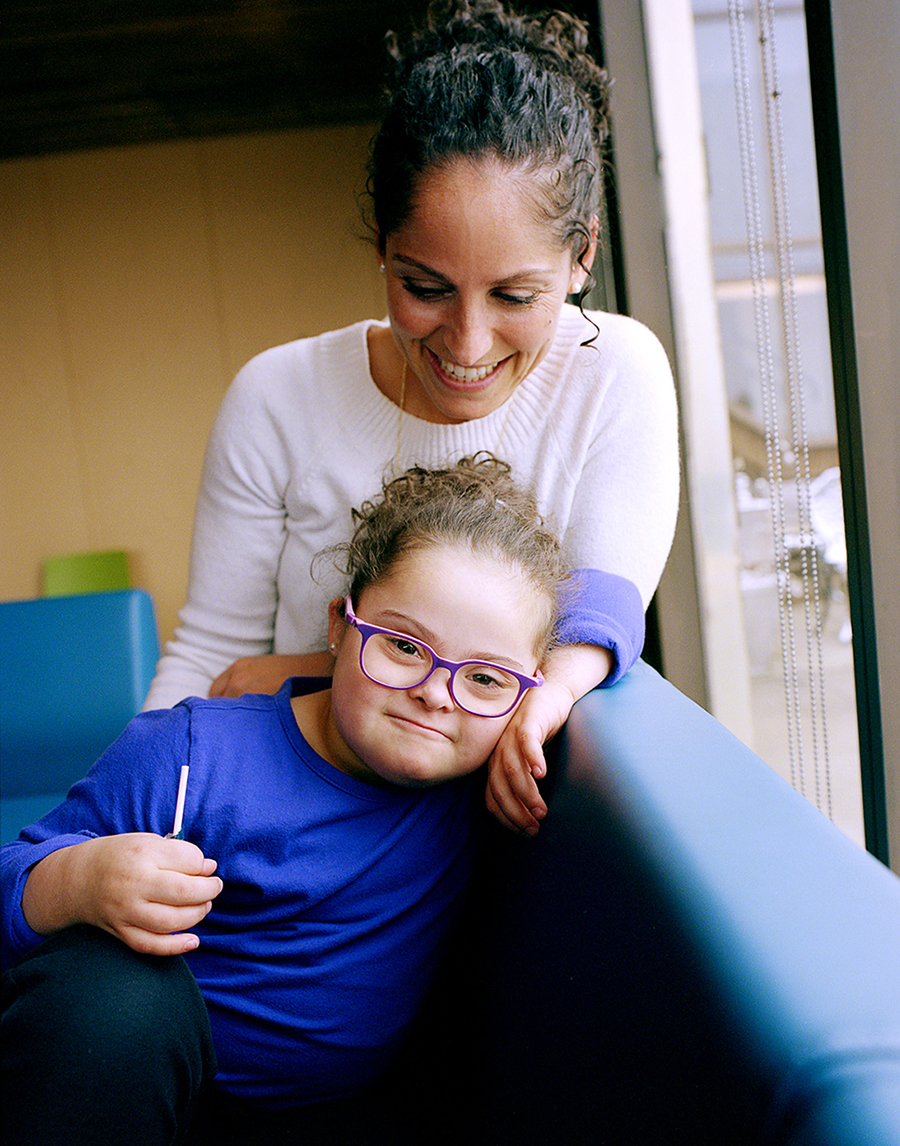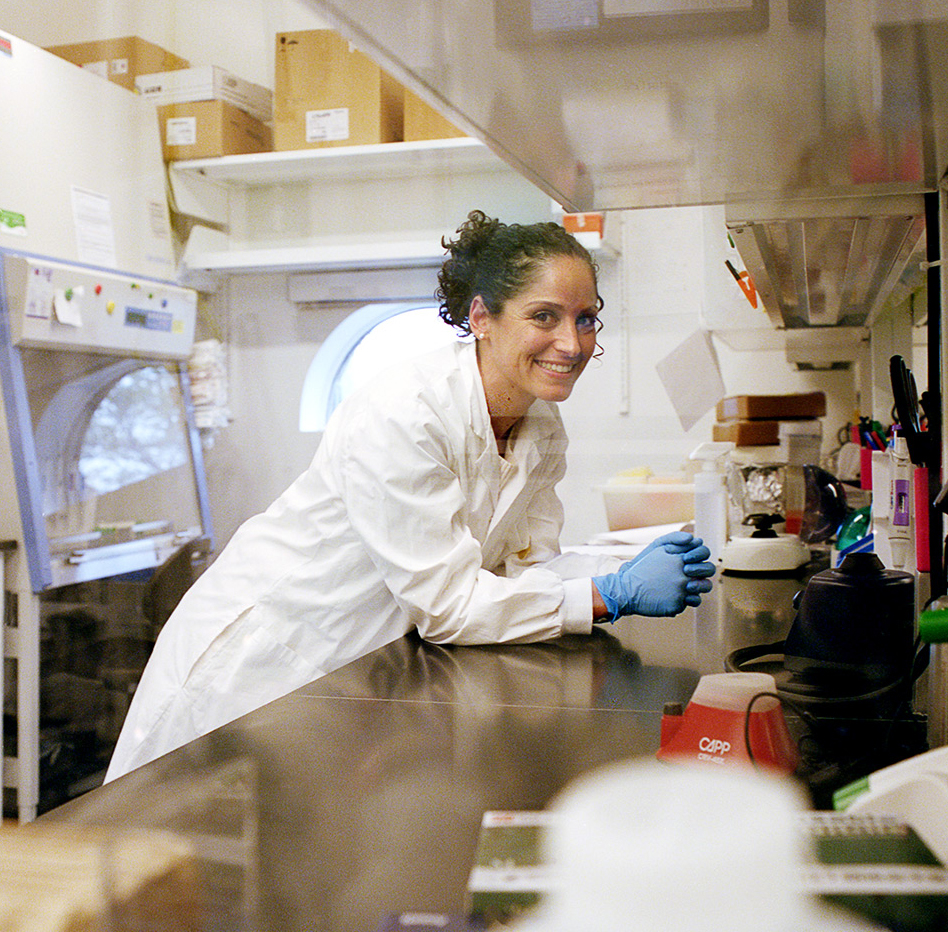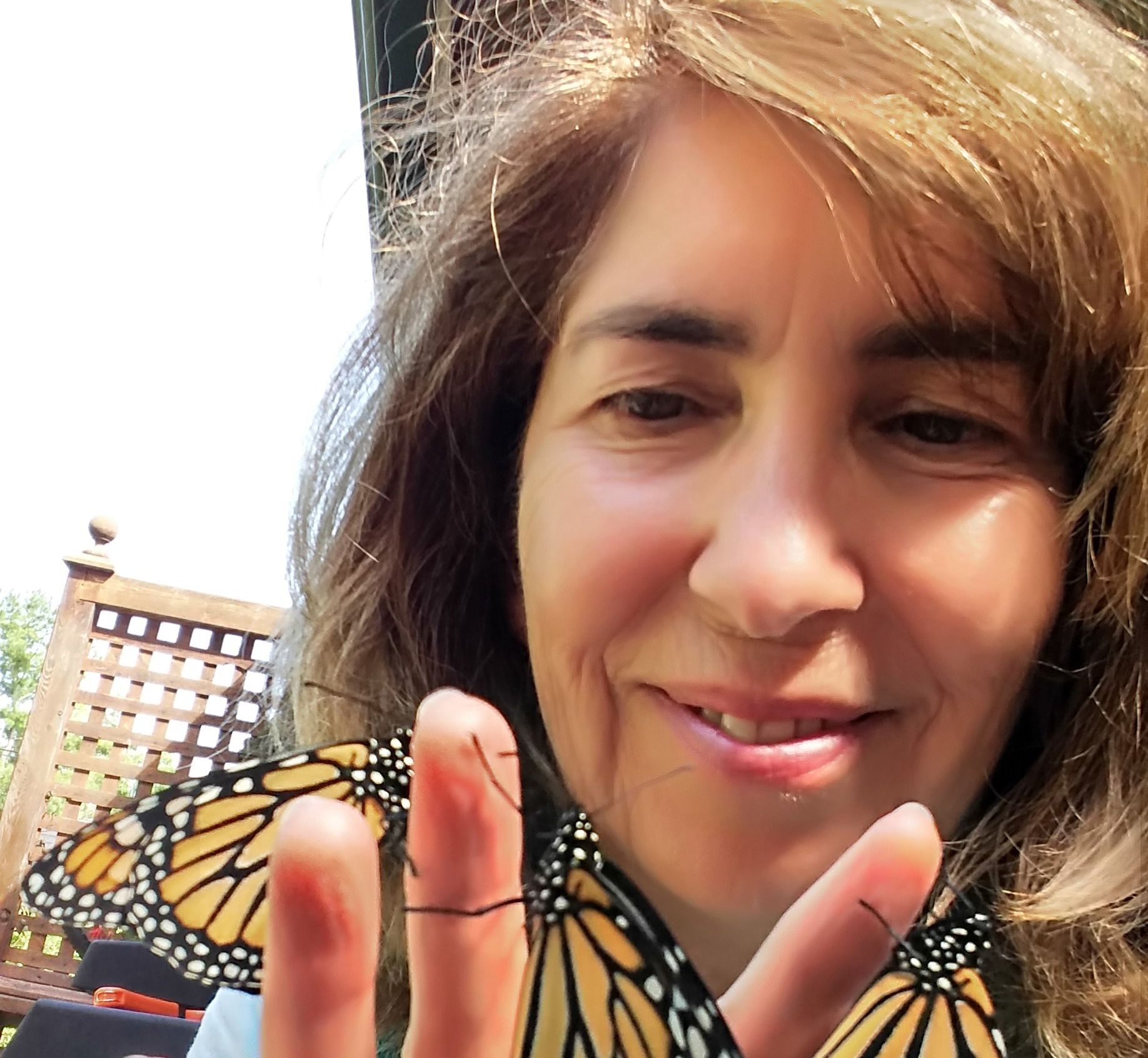Often, behind every great scientist is … another great scientist.
So, when Christina Guzzo was finishing her PhD and needed a mentor to further her training, she decided to seek out the best. “I wanted to experience what it’s like to be on the cutting edge,” she says. “Working with Anthony Fauci’s research team was my goal.”
Before Fauci became the public face of the U.S. government’s COVID-19 response, he led the world-renowned HIV research centre at the National Institute of Allergy and Infectious Diseases, part of the National Institutes of Health in Bethesda, Maryland. Guzzo, whose research focused on HIV infection, approached him at an AIDS conference.
Since Guzzo already had a solid body of published research, Fauci agreed to interview her for one of the research centre’s fiercely competitive post-doctoral positions. He was immediately struck by her intelligence, energy and commitment. Fauci says today, “Right from the very beginning, you get the impression that besides being extremely bright, Christina has a sense of purpose – to do good things with the science, with the ultimate purpose of alleviating suffering and death.” He hired her.
Guzzo hit the ground running, quickly acclimating to the intense pace and long hours of the lab and furthering HIV research over the next five years. “It was always clear that she wanted to return to Canada,” Fauci says, “but I can tell you that if she’d wanted to stay in my lab indefinitely, I would have welcomed that. She’s a productive, insightful, creative scientist.”
And now she’s a mentor herself. Since leaving the National Institutes of Health in 2017, Guzzo, 38, has been running her own lab as a professor in the department of biological sciences at U of T Scarborough. “I see how pivotal mentorship can be in shaping opportunities for people entering the sciences,” she says, “particularly young women who may feel excluded or biased against, since I too went through those feelings. And still do.”
While Guzzo encourages all her students to seek out mentors, she makes a point of telling her female students, “I believe in you” or “I know you can do it.” She says, “I feel like young women don’t often hear that others really believe in them, and it’s important for them to hear those words.” She volunteers for Sparking Science, a program designed to help high school girls learn about science and technology careers from female scientists, offering the kind of early mentorship Guzzo never had. And she’s open with her students about her need to take time off for family issues, so they too will feel comfortable taking time off when necessary. “You still need to work your butt off,” she says with a smile, “but it’s easy when you love your job.”
I see how pivotal mentorship can be in shaping opportunities for people entering the sciences.”
Mentorship hasn’t always figured so prominently in Guzzo’s life. Throughout her high school and undergrad years, she had no science mentors. She almost didn’t become a scientist at all. She was going to be a basketball player. The child of blue-collar Italian immigrants who settled in Caledon, Ontario, northwest of Toronto, Christina was a teenage sports star and kids’ camp counsellor. While she had always thought science was cool, she was leaning toward varsity basketball.
But as an undergrad at Queen’s University in Kingston, Ontario, in the mid-2000s, she heard about a student-run charitable organization doing HIV-AIDS education for youth internationally. Travel, kids and science? For Guzzo, it was a perfect fit. For the next three summers she headed to Kenya, teaming up with local university students to prepare curricula on HIV and youth empowerment for schools in the massive informal settlements around Nairobi. She didn’t realize it at the time, but she was learning how to teach.
Back at Queen’s, despite her new interest in HIV, Guzzo didn’t volunteer in a lab. “And then I met Katrina Gee.” Young and friendly, Gee was a newly hired professor in the department of microbiology and immunology. They met when Guzzo was presenting her self-directed undergrad thesis project. The two clicked, and Guzzo now had her first science mentor. Over the next five years, while Guzzo produced some significant research – she published five first-author scientific papers and six co-authored ones – Gee also taught her the importance of having fun along the way. Together, they celebrated not only the big accomplishments, such as an award, but the smaller things too, such as an experiment going right.
Moving to the U.S. to start working in Fauci’s lab, Guzzo was thrilled by the opportunities: a seemingly limitless budget, every sample at her fingertips, every collaborator she could wish for – but a lot of hard work and long hours. “It was science first, before everything,” she recalls. “People [including Fauci] devoted their lives to the work.” Fauci, who at 82 just retired, says it wasn’t his intention to create a workaholic environment. “I don’t want a laboratory full of nerds who have no other interest but science,” he says. “But I do look for people who have a strong, deep, serious commitment to science. And this is Christina, for sure.”
Guzzo was able to handle the workload, produce impressive results and still fit in daily runs. But it was tough having long separations from her husband, a paramedic educator who couldn’t get a U.S. work visa.
The dramatic turning point came in 2016, when Guzzo gave birth six weeks early to a child with Down syndrome. Baby Stella had everything from feeding and swallowing problems to a heart defect, which would all eventually require surgeries. Suddenly, Guzzo went from spending all her time in the lab to keeping vigil in the neonatal ICU. “My whole world changed,” she says, but her professional obligations didn’t let up. Eligible for only the barest minimum maternity leave, she had to go back to work after eight weeks. Her husband, taking a longer paternity leave, moved down from Canada.

Exhausted and stressed, she struggled to carry out experiments and finish a major research paper, in between pumping breast milk and meeting with Stella’s doctors. Her work was at risk of suffering, and she knew it. Lacking support systems, she felt she had no choice but to make a life-changing decision: family first, science second. It was time to return to Canada.
“Toronto was very much a coming home for us,” she says. “We both had our families and old friends, and the health-care system was easier to navigate. And I’ve been blown away by how supportive U of T has been.” She also noticed welcome changes in the culture for working parents, such as academic conferences that offer childcare and grant-review panels that meet online.
Guzzo’s research still centres on HIV infection, which today affects 38 million people – more than half of them women and girls. She studies how the virus hijacks human proteins that occur naturally on our cells in order to camouflage itself. Her findings may help guide new antiviral targets, vaccines and cure strategies – not just for HIV but for other pathogens, including coronaviruses.
As a mentor, Guzzo emphasizes not just the science but other skills such as effective communication. One grad student, who got the job she wanted in Toronto, told Guzzo that her emphasis on presentation skills gave her the confidence she needed in the job interview process. Another mentee has a post-doc lined up at Harvard University this fall. Fauci says, “I take great pleasure out of seeing Christina succeed, because she’s spreading out her influence and her training to other young people.”
Guzzo agrees that mentorship has benefits for everyone involved. “To me there’s nothing better than knowing that you may have led a student to achieve something that may not have been possible without you.”
Recent Posts
People Worry That AI Will Replace Workers. But It Could Make Some More Productive
These scholars say artificial intelligence could help reduce income inequality
A Sentinel for Global Health
AI is promising a better – and faster – way to monitor the world for emerging medical threats
The Age of Deception
AI is generating a disinformation arms race. The window to stop it may be closing






3 Responses to “ ‘I Believe in You’ ”
An excellent article that emphasizes the importance of having a good mentor and the will to succeed.
Great article. For female friends of mine who started in science decades ago, the problem was not just the shortage of female mentors in science. It was active opposition from their male colleagues. Being discriminated against was more than a "feeling"; it was reality. As in many other fields, it's crucial to change the minds of men. As an art historian, I'm still encountering younger female art historians dealing with gender discrimination -- in a field where women hugely outnumber men.
A warm salute to our wonderful neighbour, Christina Guzzo. How fortunate we were to have an expert to consult when we had questions about the pandemic. We wish her every success.